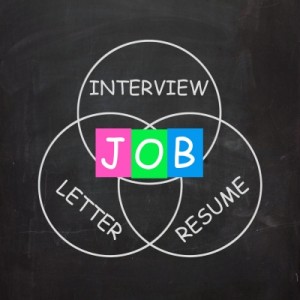 For the last two days I have been short-listing a COO role for one of my clients. Usually I don’t get involved in the recruitment delivery (I have an excellent team who support me in that regard) however because we are so busy, and because the client specifically asked me to, I have managed the candidate pool in this instance.
For the last two days I have been short-listing a COO role for one of my clients. Usually I don’t get involved in the recruitment delivery (I have an excellent team who support me in that regard) however because we are so busy, and because the client specifically asked me to, I have managed the candidate pool in this instance.
Considering this is a COO role for a private company, the application rate was extremely high both in terms of quantity and quality. We literally had over 200 candidates apply, which is a pretty staggering number. And of the 200 applicants, at least 40 met the brief and were worthy of further consideration.
Why do I think that ad response in terms of quality and quantity was so high? Firstly, it’s my opinion that over the last couple of years, a lot of senior executives have wanted to leave their current job. However, because the perceived risk was too high, they chose instead to remain in their current job until market conditions improved. Now there is a general sense of optimism in the market, people are less risk adverse, and are proactively applying for new roles. These people are not unemployed, they are already in good jobs however are now looking for something better.
Secondly, a role like a COO in a private company has mass appeal. People are looking for new challenges and opportunities, so a role that offers variety across a diverse business, which requires “wearing many hats”, is exciting. So the quality of applicants was, to be honest, overwhelming. Whereas last year we may still have gotten 200 applicants, 90% would have been unqualified for the role. In this instance at least 40 applicants were well credentialed for the opportunity.
So I literally spent over 10 hours reading CVs, and then a further six hours telephone screening my preferred applicants. Let me tell you, when you need to look through 200 CVs, it becomes a bit of a blur.
Here are some takeaways that you may find useful:
1. The use of pictures, coloured fonts, tables, graphs and any other type of graphic is absolutely, definitely NOT recommended. Whilst your CV may look sexy and snazzy to you, to me it just makes my life that much more difficult trying to quickly find the relevant information. Use the KISS principle, and Keep It Simple, Stupid! A word document, simple font, well laid out in a traditional (boring) format is the way to go. The last thing you want is for me to disregard you, purely because your CV is too hard to read and make sense of.
2. ALWAYS, ALWAYS customise your CV to the specific role you are applying for. Unless I can quickly see why this role is a good fit for you, and why you are a good fit for it, then you are going to be overlooked for the opportunity.
3. ALWAYS, ALWAYS put your contact details including phone, email and address on the CV. You would be amazed how many senior executives forget to even put their phone number on their CV. I am sure this is just an oversight rather than intended, however if you make it hard for me to contact you, then I simply won’t bother. Also, it’s important to know at least the suburb that you live in. Whilst we may live in a global economy, I still want to get a feel for how far you would need to commute for the role, or potentially relocate.
What I also found quite amazing is how many people were prepared to significantly compromise on salary, just to get considered for the role. This COO vacancy was paying $150k to $200k, yet many candidates were prepared to look at it, indeed exuberantly excited about looking at it, even if in their previous role they were being paid at least $100k more. Whilst I appreciate the intent, the reality is that you deserve to be paid what you are worth, so rather than desperately jumping at an opportunity that is well under your appropriate salary band, better to wait for something which is legitimately appropriate for you in scope of role and salary. The last thing I want is for my client to employ someone, who then quickly leaves because they are either bored or find a better opportunity paying more money.
You are all awesome candidates, and you deserve to get excellent jobs. There is no need to compromise on your own ability and expectations, just to appeal to the roles being advertised on Seek. However, I hope you can appreciate from this blog that competition for advertised roles is MASSIVE.
To create your next opportunity, I strongly encourage you to start to access the hidden job market, by reaching out to your employers of choice via LinkedIn. You need to get in front of them before they know they need you. This way you are not being compared against 200 other applicants, you are purely being assessed on your key achievements and transferrable skills.
In my opinion, the hidden job market now accounts for over 90% of executive placements. If your sole strategy for finding a new job is responding to advertisements, you may be lucky and “jag” a job quickly, or you may be waiting a very long time.
From the desk of Richard Triggs
Image by FreeDigitalPhotos.net and Stuart Miles.


